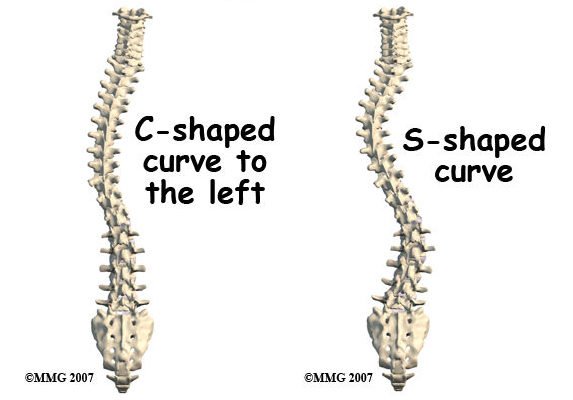In a remarkable medical achievement, a young boy from India suffering from a rare autoimmune disorder and severe scoliosis was successfully treated at Shanghai Xinhua Hospital after being turned away by multiple hospitals across the globe. This case highlights China’s leading role in treating complex scoliosis cases and managing rare diseases, particularly through innovative spinal correction techniques. At Forethought Medical, we recognize the critical role advanced medical devices and comprehensive treatment approaches play in such complex conditions, and we aim to contribute to these medical advancements through our specialized scoliosis devices.

A Boy’s Journey Through Global Medical Systems
The patient, known as Xiao Bao, faced severe health challenges since 2020. At just 10 years old, he experienced tremors, heightened muscle tone, and extreme sensitivity to touch, particularly in his chest area. Over the span of three years, his spine developed a 162-degree curvature, leaving him with significant breathing and mobility difficulties. As his health worsened, Xiao Bao and his family sought treatment in multiple countries, including India, the UK, the US, and Singapore. However, no hospital was willing to take on his case due to the complexities and risks involved, including potential complications from his rare autoimmune condition, PERM (Progressive Encephalomyelitis with Rigidity and Myoclonus), and the severity of his scoliosis.
Understanding the Complexities: PERM and Scoliosis
Xiao Bao was diagnosed with PERM, a rare and severe subtype of Stiff-Person Syndrome (SPS). This condition is characterized by muscle rigidity and painful spasms, often triggered by external stimuli like touch. PERM is extremely rare, with less than 100 cases reported worldwide, complicating treatment due to a lack of standardized protocols. Xiao Bao’s condition was further aggravated by long-term steroid use and physical inactivity, leading to osteoporosis, which made spinal surgery even more risky.
His spinal curvature reached 162 degrees, severely compressing his lungs and heart, further complicating his condition. Without treatment, Xiao Bao’s prognosis was poor, as his scoliosis and PERM continued to worsen.

Shanghai’s Multidisciplinary Approach to Complex Scoliosis
Despite the enormous challenges, Professor Yang Junlin and his team at Shanghai Xinhua Hospital took on Xiao Bao’s case, recognizing the need for a comprehensive, multidisciplinary approach. The team decided on a staged treatment plan, beginning with head-to-pelvis ring traction, a unique technique developed by Chinese scholars. This method allowed for partial correction of his spine over several months, reducing the curvature to 97 degrees and significantly improving his heart and lung function, making him eligible for surgery.
The final surgery was complex, requiring precision spinal fusion and osteotomy to correct his spine. Despite significant risks of bleeding and other complications, the surgery was successful, correcting the curvature from 162 degrees to 38 degrees. Post-surgery, Xiao Bao’s height increased by 24 centimeters, and his overall health improved dramatically, with restored respiratory function and a more balanced torso.


Implications for Scoliosis Device Innovation
The successful treatment of Xiao Bao’s scoliosis, especially when compounded by a rare autoimmune disease, underscores the importance of specialized scoliosis devices and equipment. At Forethought Medical, we focus on providing advanced medical devices tailored to the needs of complex scoliosis cases, including solutions for patients with conditions like PERM that complicate traditional treatment methods.
For example, spinal braces designed to accommodate severe curvatures, innovative traction systems, and osteotomy tools can significantly improve the outcomes of patients facing extreme scoliosis, as demonstrated in Xiao Bao’s case. Additionally, our devices are designed with a focus on improving patient outcomes, enhancing recovery times, and offering long-term stability post-surgery, even in cases with underlying conditions like osteoporosis.

Why Early Detection and Intervention Matter
As shown in Xiao Bao’s case, early detection and intervention are crucial in treating scoliosis, especially in pediatric patients. At Forethought Medical, we advocate for early scoliosis screening and the use of advanced diagnostic tools that can detect spinal deformities at an earlier stage. This allows for more conservative treatment options and better long-term outcomes.
Parents should be vigilant in noticing signs like uneven shoulders or back pain in their children, as these could be early indicators of scoliosis. The earlier scoliosis is detected, the more options are available for non-invasive treatments, such as bracing and physical therapy, which can prevent the condition from worsening and potentially eliminate the need for surgery altogether.

Conclusion
Xiao Bao’s journey from facing rejection by global medical institutions to undergoing successful spinal correction surgery in Shanghai highlights the strides being made in scoliosis treatment. His case serves as a reminder of the importance of innovation in medical devices, particularly for rare and complex conditions like PERM-associated scoliosis. At Forethought Medical, we remain committed to developing advanced solutions for scoliosis care, enabling patients to access life-changing treatments and achieve better outcomes.
For more information on our scoliosis medical devices, visit Forethought Medical.

References
- Stiff-person syndrome with PERM: A case report. Chinese Journal of Neurology. doi:10.3760/cma.j.cn113694-20230111-000212
- Advances in SMA Treatment Research. Chinese Journal of Contemporary Pediatrics. doi:10.7499/j.issn.1008-8830.2110041
This combined rewrite links the original medical report to the mission and products of Forethought Medical, focusing on innovation in scoliosis treatment devices.
